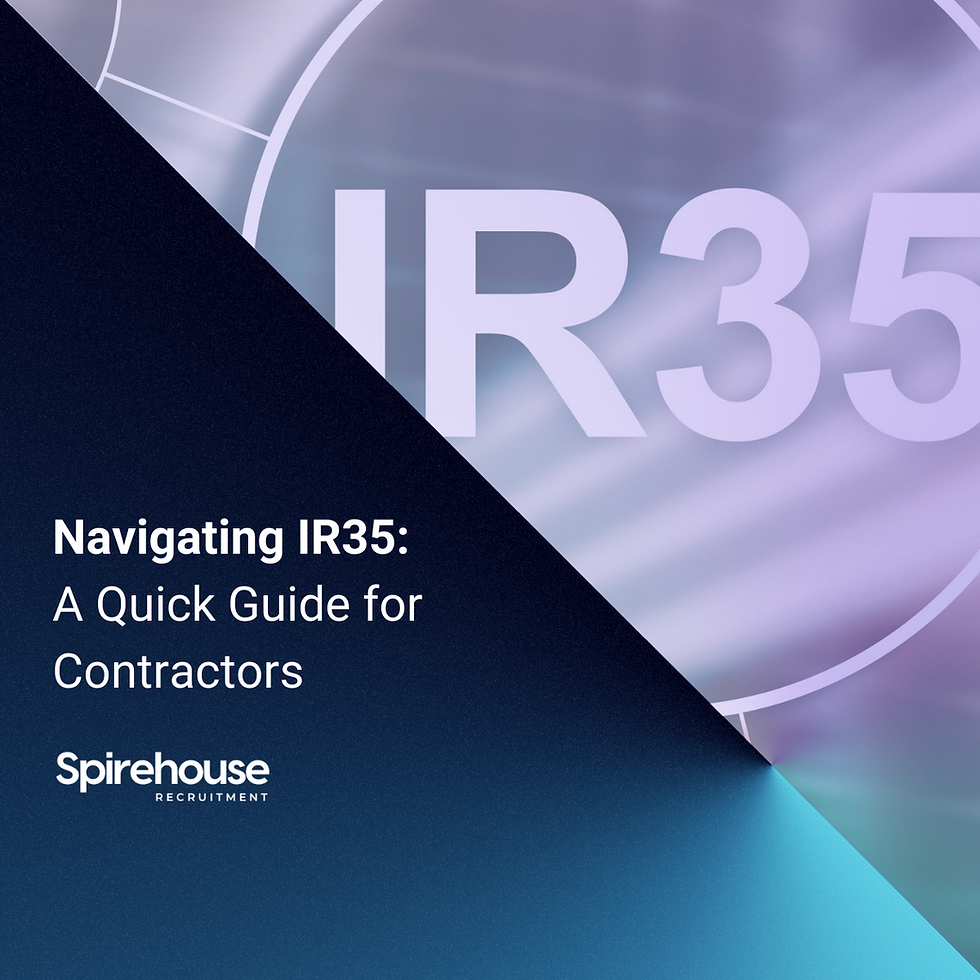How to Streamline your Hiring Process and Avoid Missing Out on Talent
- Spirehouse
- Nov 29, 2023
- 2 min read
Updated: Jan 29, 2024
Last week I had a conversation with a HR contact in the education sector around the difficulties faced when recruiting directly.
The usual issues came up (budgets impacting salary, lack of remote working, inability to take annual leave in term time), but the requirement to complete an application form prior to interview was one I had not envisaged or expected.
The LinkedIn poll I posted last week produced resounding results. Of 140 people who voted, 121 stated a lengthy application process would put them off applying for a job. Although a relatively small sample, 86% is conclusive.
It begs the question, how many companies have missed out on great talent because of this?
I wanted to explore this further, so I completed a job application online. It took me 60 minutes to get to the point of completion and, in all honesty, that was without me putting too much effort into the answers I was providing. A few findings:
Detail – Going into detail (200 words) about my experience in the core competencies of the job (10 in total), that’s 2,000 words.
Education – I understand relevant qualifications but is a full education history required?
References – Why are these relevant pre interview?
An article published by Indeed (https://uk.indeed.com/career-advice/finding-a-job/how-many-applications-to-get-job) states that “Aiming for somewhere between 10 to 15 applications per week gives you a good opportunity to find new positions and improve your chances of securing an interview”. 10 – 15 per week, each application taking 60 minutes, that’s a lot of time for people to commit to.
Furthermore, an article published in the Financial Times this year highlighted the rise of adult diagnoses of neurodiversity (https://www.ft.com/content/e1ec787f-9089-4afb-9e53-8e69e3d45405), conditions such as autism, ADHD, dyspraxia and dyslexia and how the workplace needs to adapt in order to become neuroinclusive.
These individuals may find it difficult completing lengthy application forms, understanding instruction, and processing information under time pressure and as a result, may miss out on job opportunities they are highly qualified for.
I’ve recently worked with a public sector organisation who request the application form to be completed once an interview has been offered. At least this way, the applicant may be more willing to complete it.
As recruiters and hiring managers, it’s important to recognise these challenges and consider alternative approaches to ensure that everyone has a chance to succeed in the workplace, and ultimately, tailor recruitment campaigns and the application process to ensure applicants, and of course the companies who want to attract talent, do not miss out.
I can appreciate why application forms are in place, to filter applicants without conducting a high volume of interviews, but is there a half-way house? Can the application process be shortened? Can alternative methods such as video be implemented?
Spirehouse work with companies to ensure good candidates aren’t missed whilst balancing the commercial running of the business. Time is precious for everyone but how can the balance be struck.
Written by Jack Sharpe
To discuss streamlining your recruitment process or any specific vacancies, please contact Jack on:
jack@spirehouse.co.uk | 07425 074963





Comments